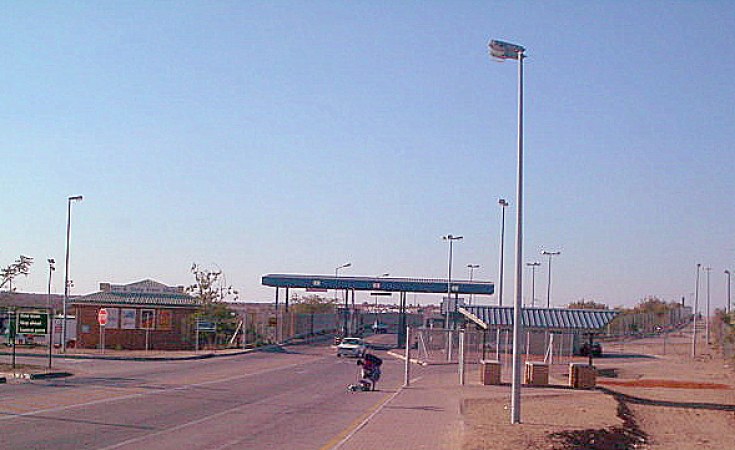Using billions in public funds for private border security could be the latest chapter in government's xenophobic fixation.
Securing borders against irregular migration has come to dominate global immigration policymaking and spending - driven largely by inaccurate politicised narratives that economic migration is a threat. With that in mind, proposals from a floundering Department of Home Affairs (DHA) to pay billions in public rand to private companies to upgrade the country's busiest border posts should be queried.
South Africa can indeed benefit from improved technology and efficiency at border crossings that enable the speedy movement of people and goods. But DHA has a worrying pattern of disproportionately targeting economic migrants from neighbouring countries. If the primary motivation of its latest initiative is to clamp down on irregular African migrants, the move will endanger the lives of migrants forced to use more risky routes, and could fail to facilitate regional trade and safety.
Earlier this month, DHA called on companies to tender to redesign and redevelop six land bordering Zimbabwe, Mozambique, Lesotho, Botswana and Eswatini. Minister Aaron Motsoaledi said the upgrades would build on the 2022 launch of the Border Guards under the Border Management Authority. The guards were intended to make the borders safer, less porous and more efficient for regional trade and people moving legitimately, while curbing the illegal movement of people and goods.
Tenders for the multibillion-rand public-private partnership close in March 2024. Companies are expected to install innovative technologies such as gamma rays to scan vehicles for illegal goods and people - an upgrade from manually sampling suspicious cars.
The DHA has a worrying pattern of targeting economic migrants from neighbouring countries
In many global north countries, budgets have steadily risen as immigration has become politicised. The approach has increasingly focused on 'enforcement' first, to the detriment of humanitarian concerns or the economic and developmental potential that migrants offer host countries.
The European Border and Coast Guard Agency is the most expensive of all European Union agencies. Companies providing private immigration services such as guarding, visa processing and detention have boomed and were worth about $US48 billion in 2022. Yet even as legal migration pathways shrink, more people are moving globally than ever, driven by the confluence of conflict, poverty and climate change.
Heavily securitised borders can deter movement to a specific location, but don't prevent people from moving. They shift migrants to different crossings and drive people to use irregular methods, increasing their risk of death and suffering. Criminal and terrorist enterprises rarely use land crossings, preferring to travel by plane or boat using corruption or other strategies to facilitate their journeys.
Despite evidence of how harmful and ineffective overly-securitised policies are from a migration management perspective, governments continue using the same approaches focused on keeping migrants out.
Heavily securitised borders can deter movement to a specific location, but don't prevent people from moving
Australia, the United States and Germany have commercialised aspects of border guarding, detention and visa applications. Privatising public services raises questions about transparency, accountability and profiteering. It elevates corruption risks, and the lack of consumer protections calls the system's integrity into question. Applicants become customers and lose accessibility and accountability with regard to those assessing their cases.
The argument for privatisation is typically based on greater efficiency or job creation. This has yet to materialise with DHA, which outsourced visa processing to VFS Global in 2014, a company headquartered in Dubai and owned by holding companies in the Cayman Islands, Jersey and Luxembourg. It has been accused of corruption multiple times.
South Africa's visa backlog in March stood at 60 000, leaving many investors, businesses and workers frustrated. The DHA blundered a short-lived plan to process all visas through a centralised adjudication system. After failing to implement an e-Visa, the department allegedly outsourced the function to VFS Global without any tender process.
Backlogs and privatisation blur the lines between public services and 'add-on' or premium profit-making services. Many companies in South Africa offer queue-jumping services at high fees without oversight. Some are scams that produce false documents or pay bribes for expedited services.
The argument for privatisation cites efficiencies or job creation, but this has yet to materialise with DHA
Most people crossing the country's busiest land ports are low-skilled Africans from neighbouring countries looking for work. Evidence shows that undocumented migrants help grow the domestic and regional economy, and no evidence links them disproportionately to crime. The DHA's efforts to problematise these migrants have increased alongside xenophobic rhetoric from politicians and violence against foreigners.
The 2017 White Paper on International Migration acknowledged that circular migration contained regional development benefits, and that inadequate legal pathways for low-skilled migrants led to irregular migration and asylum system abuse. It proposed regularisation schemes, a Southern African Development Community visa for low-skilled workers, and access to asylum for those in need. These measures, coupled with enforcement, present a holistic, effective and less expensive approach to managing migration.
Instead, DHA continues to focus on securitisation. Laws restricting access and rights have been enacted, such as the Refugees Amendment Act and Border Management Authority Act. And the steps proposed in the white paper haven't progressed.
There is no doubt that South Africa's overburdened infrastructure, antiquated technologies and corruption at land border posts must be fixed. Nevertheless, paying billions to private companies for land port upgrades at a time when xenophobia is widespread and general elections are just a year away, is concerning.
As DHA moves forward with its securitised approach, it must show how upgraded border posts have helped tackle transnational crime, trafficking and terrorism, and facilitated cross-border trade and travel.
Improvements should be complemented with better visa pathways for Africans, eliminating visa backlogs, upholding access and rights for refugees and asylum seekers, streamlining customs and immigration processes, training personnel and cleaning up departmental corruption and mismanagement.
Aimée-Noël Mbiyozo, Senior Research Consultant, Migration, ISS Pretoria


